




as incorporated in 1941 and is a global manufacturer of branded and bel apparel, including newborn, infant, toddler, girls, boys, men's, and with over 3,000 employees worldwide. Our most famous and ed brand is Garanimals children's apparel.
and trust are very important to Garan. We understand our customers purchase garments that are made in a sustainable way; they want to garments they know were made in an ethical, compliant way. Most of want to know they can trust the company that makes the garments they his reason, we will be transparent in our sustainability efforts.
addressing our environmental footprint by taking steps to save energy ce our greenhouse gas emissions. We have strong ethical compliance s for our supply chain. Our factories are 3rd party audited to ensure ce with our requirements as well as local, state, country, and customer ents.
focused on the wellbeing of our employees. We strive to provide a lthy environment for our employees while they are in the workplace. lly, we participate in various community programs that help to improve of people in the communities in which we live and work.
Garan is a Global apparel company that has been in business for over 83 years. Garan employs more than 3,000 people around the world as well as helps assure jobs for thousands more throughout our supply chain. Our business is built on integrity and trust. We care about our people and the communities in which we live and work. We have employees who have been with Garan more than 30 years as well as many newcomers. We believe in Diversity and Inclusiveness, Equality and Fairness in jobs and wages. We strive to ensure our garments are produced in an Ethically and Socially compliant way. We invest in 3rd party audits to ensure factories that produce our apparel are following our strong Code of Ethics and Human Rights Policy. Before sustainability became a significant social issue, Garan was already recycling, reducing waste in landfills and conserving our electricity use, along with many other ecological initiatives. We thought it was the right way to do business then and deeply believe it is the right way to do business today and in the future. We are committed to doing our part to preserve our environment. We believe it is important to preserve our environment for our children today and for future generations to come. We understand, being a sustainable company, will require taking one step at a time and when we think we have done all we can, we will look for other ways to continue on our sustainability journey. Sustainability is more than just using less water, using less electricity and producing less Greenhouse Gas. While those things are definitely important, the world’s people are its greatest asset. Continuing our sustainability efforts into the future depends on people and the beliefs instilled in people that they can make a difference.
Jerald Kamiel


bility. We believe sustainability is a combination of social, economic all are key to building a sustainable future. We know what we do today journey in 2008. We began by taking small steps in learning how our ffecting the environment. We began with simple changes designed to umption, waste to landfill, and Greenhouse Gas (GHG) emissions. ind ways to reduce our impact. L.E.D. lighting, renewable solar power ing machines, paperless billing, investing in more sustainably sourced ays to eliminate paper are some of our more recent efforts in
ore than a workforce, they are our family. This is why we have invested workplace environment. Extensive third-party audits are carried out in they meet ethical and safety standards set forth by law. These gs as no child labor, strict adherence to country safety regulations, ource reduction management to name a few. In addition, we provide rams focusing on a variety of safety, health, and living topics. Garan asing fabric from reputable business partners committed to ethical ces. We will not work with or purchase from any manufacturers or ith our Supplier Code of Conduct.
made strides in our sustainability journey. Since the start of 2008, lion pounds of waste material across all of our facilities. Through our ability practices and technology, we have reduced our electricity use by %.
sustainable and safe fibers. Today we source 100% sustainable cotton on, organic cotton and other sustainable fibers as often as possible. e and comfortable for all children, all components in our garments are fied.
missions data, recycling efforts, and energy consumption to various CDP (formerly the Carbon Disclosure Project), Higg Index, Walmart’s art Product Stewardship Network (PSN)/THESIS.
We’ve reduced our absolute emissions by 69% and emissions intensity by 63% since 2008.
Since 2022, our Scope 1, 2, and 3 Greenhouse Gas Emissions have been verified by an independent 3rd party.
Since 2008, we have reduced our total yearly CO2 emissions by 3,521 MT for both Scope 1 and 2 emissions. This is equal to removing 766 cars from the road for a year.
34% of all electricity used in our facilities comes from renewable energy. Since 2019, we have generated over 12 Million KWH of renewable solar energy. .
We are sourcing 100% of our cotton as more sustainable cotton (USA Cotton, Better Cotton, Organic, etc.)
We used 837 MT of recycled polyester in 2024. By switching to recycled polyester, which emits approximately 2.856 kg of CO2 per ton of fiber produced, we save 6.664 kg of CO2 emissions per ton of recycled polyester fiber.

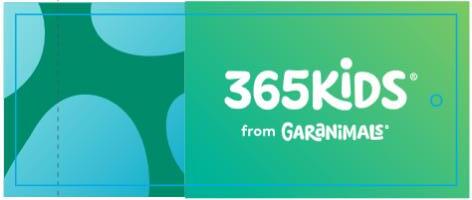

Garan's main goal is to produce exceptional quality apparel for children. Because children outgrow their clothing so fast, our intent is to make sure all children can be dressed in safe, long lasting apparel. Our clothes are designed to be able to be passed down from child to child for years to come. This not only allows for consumers to save money, but also helps keep our products out of landfills longer and reduces the number of garments needed in the supply chain.
Almost 90% of the energy used by a washing machine comes from heating the water. By switching from hot or warm water to cold water washing, Garan is allowing our customers to save energy. In fact, each household that makes the switch to cold-water washing eliminates about 1,600 pounds of carbon dioxide emissions a year, according to the Sierra Club.** By following our labeled care, the consumer not only saves energy and money, but also reduces their environmental impact.
**Info gathered at gogo aundry com/wash-clothes-in-co d-water-to-save-energy/
Our goal is to be at least 90% efficient in the utilization of all fabric. However, our experience tells us due to the complexity of some styles, we will not always achieve this goal. To work toward continuous improvement, all styles are audited to double check that fabric usage is as efficient as possible for each specific style.
As a company, Garan incorporates sustainable practices and policies throughout our entire supply chain. We recognize the harm a company can have on the planet by being environmentally irresponsible and are committed to continual analysis and progress. This starts within our walls, with everything from our corporate offices to our manufacturing facilities and extends into our supply chain. We are committed to engaging our suppliers, customers, and end use consumers in our efforts to reduce and/or eliminate waste in our supply chain as well as reduce our overall environmental impact.
For the past several years, we have partnered more closely with our supply chain to collect primary data and improve our reporting and performance. Our long-term and close relationships with suppliers means that we can react quickly to changing customer demands and trends. We will continue working with our supply chain partners, taking one step at a time into a more sustainable future.
BY SHIPPING FULL CONTAINERS (AT LEAST 90% FULL) OF FABRIC AND FINISHED GOODS, WE REDUCE THE NUMBER OF CONTAINERS SHIPPED, WHICH IN TURN REDUCES USE OF FUEL.
WE REQUIRE 100% OF OUR TEIR 1 SUPPLIERS AND TO REPORT THEIR ENVIRONMENTAL IMPACTS USING THE HIGG FACILITY ENVIRONMENTAL MODULE (FEM) AND TO HAVE THESE REPORTS VERIFIED BY A 3RD PARTY EVERY OTHER YEAR.
IN ADDITION, WE REQUIRE SUPPLIERS TO REACH LEVEL 1 (25%) IN ALL CATEGORIES BY 2025.
WE REQUIRE FABRIC MILLS AND GARMENT WASHERS TO STRICTLY MONITOR THE CHEMICALS USED IN DYEING AND WASHING AGAINST THE ZERO DISCHARGE OF HAZARDOUS CHEMICALS' (ZDHC) MANUFACTURING RESTRICTED SUBSTANCES LIST (MRSL).
Garan is committed to working with supply chain partners who provide fair, safe and healthy working conditions for their workers. We choose to work with partners that share our standard of excellence, ethical and responsible conduct in all operations and respect for the rights of all individuals. We expect all our supply chain partners to comply with our Code of Conduct.
Garan values fair and equal work for all. We do not tolerate forced or child labor of any kind and are committed to doing our part to see that it is eliminated from our industry.
We are continually vigilant to the potential risks related to labor practices in our supply chain. To ensure our high ethical compliance standards are met, we conduct routine stringent, unannounced 3rd party audits in all of the factories that produce our garments.
All factories that produce our garments undergo an audit and certification process to ensure we meet ethical and social standards. All production facilities are both WRAP (Worldwide Responsible Accredited Production) and SMETA (Sedex Members Ethical Trade Audit) certified. These certifications are required to do business with Garan.
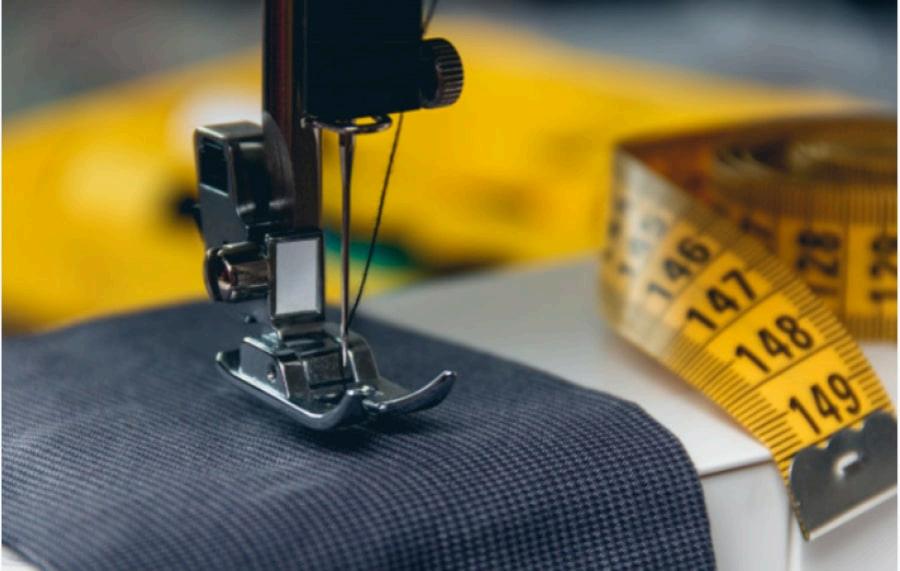
Sedex's SMETA is a social auditing methodology, enabling businesses to assess their sites and suppliers to understand working conditions in their supply chain. Social auditing enables brands like Garan to demonstrate their commitment to human rights, business ethics, environmental impact, and monitor worker health and safety. All SMETA audits are carried out by independent third-party organizations approved by Sedex.

WRAP is the largest independent facility certification program in the world focused on apparel, footwear, and sewn products. WRAP issues certifications based on a facility's compliance with WRAP's 12 Principles. Garan utilizes WRAP's certification process to ensure our production facilities are meeting international workplace standards, local laws, and workplace regulations including these areas:
12 Principles
Compliance with Laws and Regulations
Prohibition of Forced Labor
On site audits are conducted to inspect workplace, overwork, discrimination, low pay and forced working conditions. The following areas are reviewed during the audit:
Wages
Right to Work
Working Hours Health and Safety Temporary Workers Fair treatment of staff Provision of rest time
Prohibition of Child Labor
Prohibition of Harassment and Abuse
Freedom of Association and Collective Bargaining Environment Customs Compliance Security

Compensation and Benefits
Hours of Work
Prohibition of Discrimination
Health and Safety
All factories used to produce our garments must be rated Yellow or Green and must work to ensure constant compliance with SMETA and WRAP certification. 9

The Uyghur Forced Labor Prevention Act (UFLPA) was enacted on December 23, 2021, and became effective in June 2022. The UFLPA aims at combatting corporate exploitation of Uyghur forced labor used in the production of goods made wholly or in part in China’s Xinjiang region (XUAR) or by entities on the UFLPA Entity List.
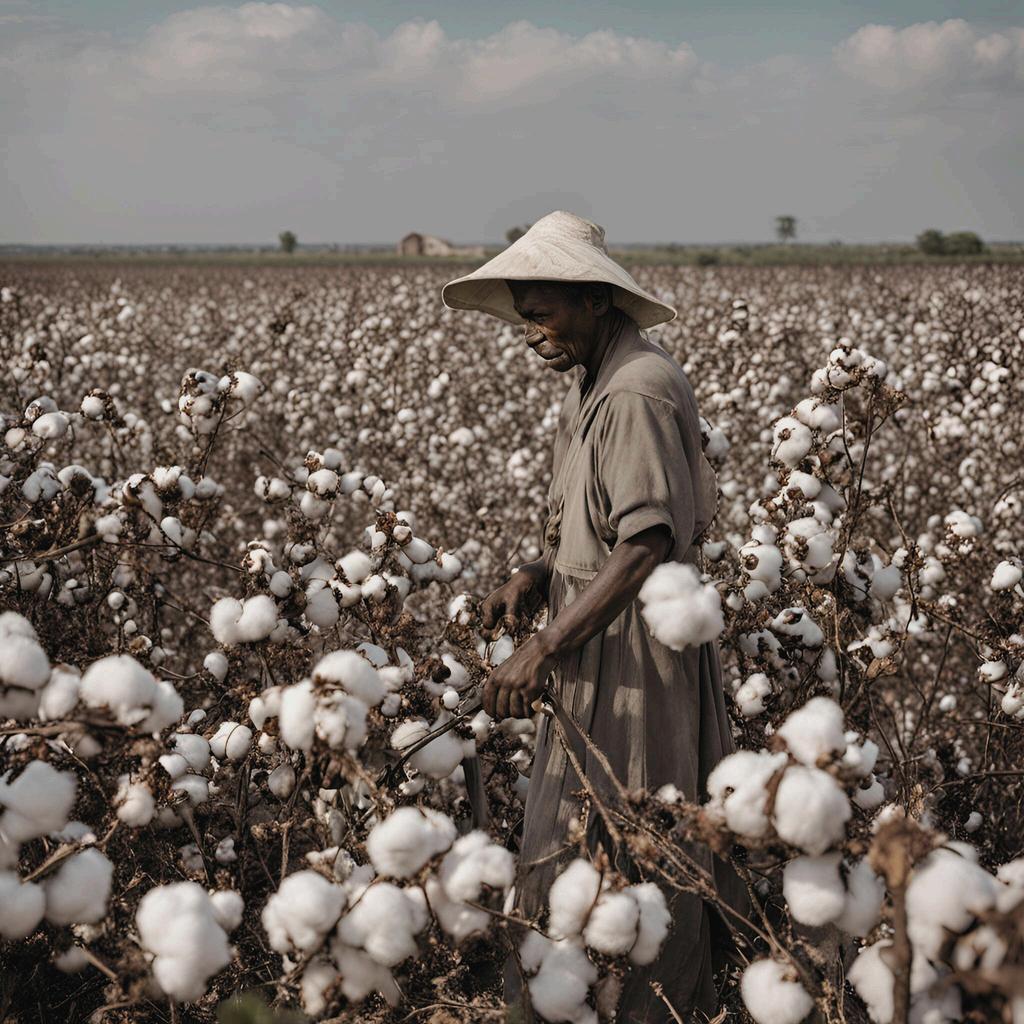


Garan has always been against the use of forced labor in both our company and supply chain. To further our efforts to ensure our supply chain is free of forced labor, we have partnered with Altana. Garan is working to map our supply chain using Altana. Altana applies AI to a vast network of public and private data — the largest, organized body of supply chain data in the world — to help customers see global value chains, focus on critical business needs, and act collaboratively to manage them.
The U.S. Customs and Border Protection (CBP) maintains several lists of entities and individuals that are subject to various restrictions and sanctions. With the adoption of Uyghur Forced Labor Prevention Act of 2021, a new addition known as the UFLPA Entity List was created. This list includes entities that are involved in the use of forced labor, particularly in the Xinjiang Uyghur Autonomous Region of China. Any goods created in this region are presumed to be in violation of U.S. laws and are barred from entry until proven otherwise.
To ensure compliance with the Uyghur Forced Labor Prevention Act (UFLPA), Garan uses the UFLPA's entity list to vet new suppliers by cross-referencing potential suppliers against the list of entities known to engage in forced labor practices. This vetting process helps avoid sourcing from suppliers involved in unethical labor practices. Additionally, we maintain a monthly check of current suppliers by regularly reviewing updates to the UFLPA entity list. This ongoing monitoring ensures that any new additions to the list are promptly identified, allowing for immediate action if any of their existing suppliers are found to be non-compliant. By integrating these practices into our supply chain management, we continue to uphold ethical standards and mitigate the risk of importing goods produced with forced labor.
Along with our checks against forced labor, Garan also regularly conducts audits of supplier facilities to ensure they understand and continue to meet our Code of Conduct.


One of the top commodities imported from the Xinjiang Uyghur region of China is cotton which can be used to produce textiles/apparel, specifically those containing cotton. Companies like Garan have a responsibility to ensure the cotton contained within their garments does not originate from regions with a risk of forced or unfair labor.
As part of our due diligence program, Garan partnered with Oritain in 2024 to implement DNA testing of cotton used in our garments to ensure they do not originate from regions of the world with risk of forced labor. Every part of the environment is made up of different levels of chemical elements and isotopes, which give products a unique and inherent chemical fingerprint based on their origin. Using this, Oritain is able to perform a forensic science test of products/raw materials. With over 95% of the world’s cotton producing countries mapped, Oritain offers an unparalleled view of cotton produced globably.
At GARAN, Incorporated (“Garan”), we are committed to:
a standard of excellence in every aspect of our business and in every corner of the world in which we and our suppliers operate ethical and responsible conduct in all our operations; and respect for the rights of all individuals.
As a subsidiary of Berkshire Hathaway, Inc. we have adopted and adhere to its Code of Conduct and Ethics, which can be accessed at: www.berkshirehathaway.com/govern/ethics.pdf
Garan seeks reputable business partners who are committed to ethical standards and business practices compatible with those of Garan.
Garan has established the Garan Supplier Code of Conduct (“GSCOC”) containing the key principles under which we require our worldwide suppliers to operate (“Garan Suppliers”).
This GSCOC is intended to clearly establish, considering differences in cultures and legal requirements, Garan’s expectations in all factories in which our products are manufactured or components produced. Garan products will be manufactured in a manner compatible with the high standards that have contributed to the outstanding reputation of Garan and our brands.
Garan strongly encourages Suppliers and any contractors to exceed the requirements of the GSCOC and promote best practices and continuous improvement throughout their operations. Compliance is monitored through inspections throughout the year and an annual confirmation of knowledge of, and compliance with the GSCOC.
This GSCOC applies to facilities involved in the production of products for Garan or any of our subsidiaries, vendors, agents or licensees including entities with direct relationship with Garan and any of their contractors or suppliers involved in production of Garan products (“Garan Suppliers”).
Garan Suppliers must fully comply with all applicable laws and regulations of the countries in which they, their suppliers and their customers operate.
Child Labor
Garan will not tolerate the use of Child Labor. Garan Suppliers must not employ workers younger than the minimum age established by law in the country of manufacture. In addition, Garan Suppliers must comply with all legal requirements for the work of authorized young workers, particularly those pertaining to hours of work, wages, and working conditions.
Forced Labor
Garan Suppliers must not use involuntary or forced labor, whether indentured, bonded, prison or otherwise.
Harassment and Disciplinary Practices
Garan Suppliers must treat all workers with respect and dignity. No worker shall be subject to corporal punishment, physical, sexual, psychological or verbal harassment or abuse. In addition, Garan Suppliers will not use monetary fines as a disciplinary practice.
Wage and Benefits
Garan Suppliers must pay workers at least the minimum compensation required by local law. In addition, Garan Suppliers must provide all legally mandated benefits. In addition to their compensation for regular hours of work, workers must be compensated for overtime hours at such premium rate as is legally required or, in those countries where such laws do not exist, at least equal to 25% of their regular hourly compensation rate.
Garan Suppliers must ensure that workers shall not work more than the lesser of (a) sixty (60) hours per week, including overtime, or (b) the limits on regular and overtime hours allowed by the law of the country of manufacture. In addition, all workers shall be entitled to at least one day off in every consecutive sevenday period.
Garan Suppliers must provide their workers with a clean, safe and healthy work environment in compliance with all applicable, legally mandated standards for workplace health and safety in the countries in which they operate. This includes residential facilities, if applicable.
Nondiscrimination
While Garan recognizes and respects cultural differences, Garan Suppliers must ensure employment – including hiring, remuneration, benefits, advancement, termination and retirement – is based solely on ability.
Garan Suppliers must recognize and respect the rights of workers to exercise lawful rights of free association, including joining or not joining any association.
Freedom of Association and Collective Bargaining
Garan Suppliers must recognize and respect the rights of workers to exercise lawful right to free association, including joining or not joining any association. Garan Suppliers must also respect the legal right of workers to bargain collectively.
Garan is committed to sustainable business practices and the preservation of the environment. Garan Suppliers must comply with all local environmental laws applicable to the workplace and Garan-specific sustainability initiatives.
Garan Suppliers must not use subcontractors in the manufacture of Garan products or product components without approval from Garan, and only after the subcontractor has agreed to comply with this Supplier Code of Conduct.
Communication
Garan Suppliers must prominently display – in the languages of workers and supervisors – a Garan Supplier Code of Conduct poster and communicate the provisions or the Garan Supplier Code of Conduct to workers and supervisors.
Garan will undertake affirmative measures, such as announced and unannounced on-site inspections of production facilities, to monitor compliance with this GSCOC. Garan Suppliers must maintain on site all documentation necessary to demonstrate compliance with the GSCOC, and Garan Suppliers must allow representatives from Garan, or its appointees, full access to production facilities, worker records and workers for confidential interviews in connection with monitoring visits.
Garan Suppliers are expected to take necessary corrective actions to promptly remediate any noncompliance. Garan reserves the right to terminate its business relationship with any Garan Supplier who does not comply with this Code.
Garan is committed to sourcing cotton form 100% more sustainable sources.
Cotton has historically been one of the most commercially grown crops in the world, leaving devastating impacts when grown irresponsibly. By growing cotton in a sustainable fashion that cares for the environment, farmers minimize the negative effects of fertilizers and pesticides. This leads to improved soil health, less pollutants getting into water sources, and reducing the strain on local animal habitats.
Garan is committed to sourcing 100% of our cotton as "more sustainable cotton". "More sustainable cotton" includes Better Cotton, Cotton USA, USA Cotton, recycled cotton, and organic cotton.
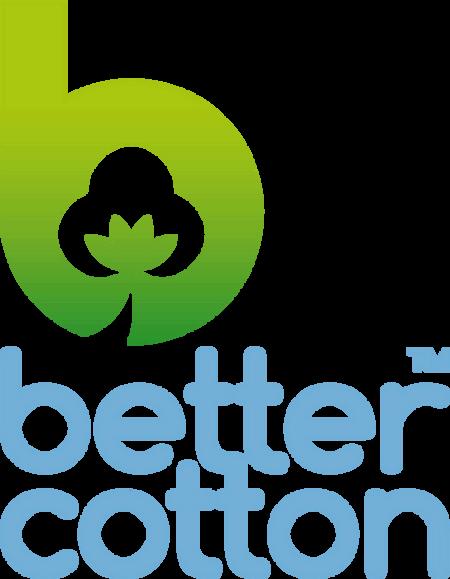
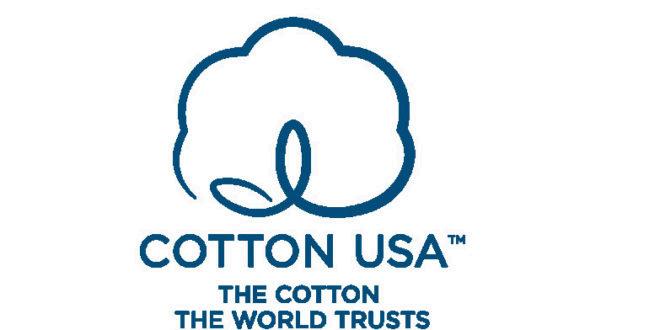
GARAN IS A PROUD MEMBER OF BETTER COTTON® AND IS COMMITTED TO SOURCING MORE SUSTAINABLE COTTON. BETTER COTTON® IS A NON-PROFIT GROUP WHOSE MISSION IS TO HELP COTTON COMMUNITIES SURVIVE AND THRIVE, WHILE PROTECTING AND RESTORING THE ENVIRONMENT. BETTER COTTON® IS SOURCED VIA A SYSTEM OF MASS BALANCE AND IS NOT PHYSICALLY TRACEABLE TO END PRODUCTS.
In 2018, we made a commitment to source 100% more sustainably grown cotton. Since 2021, we have achieved this goal.
At Garan Inc., we are dedicated to creating high-quality products that are not only stylish and comfortable but also environmentally responsible. One of the keyways we achieve this is through our use of certified organic cotton.
Certified organic cotton is grown without the use of synthetic pesticides, fertilizers, or genetically modified organisms (GMOs). This sustainable farming practice helps to protect the environment, reduce water usage, and promote healthier soil. Additionally, organic cotton farming supports the wellbeing of farmers and their communities by reducing their exposure to harmful chemicals
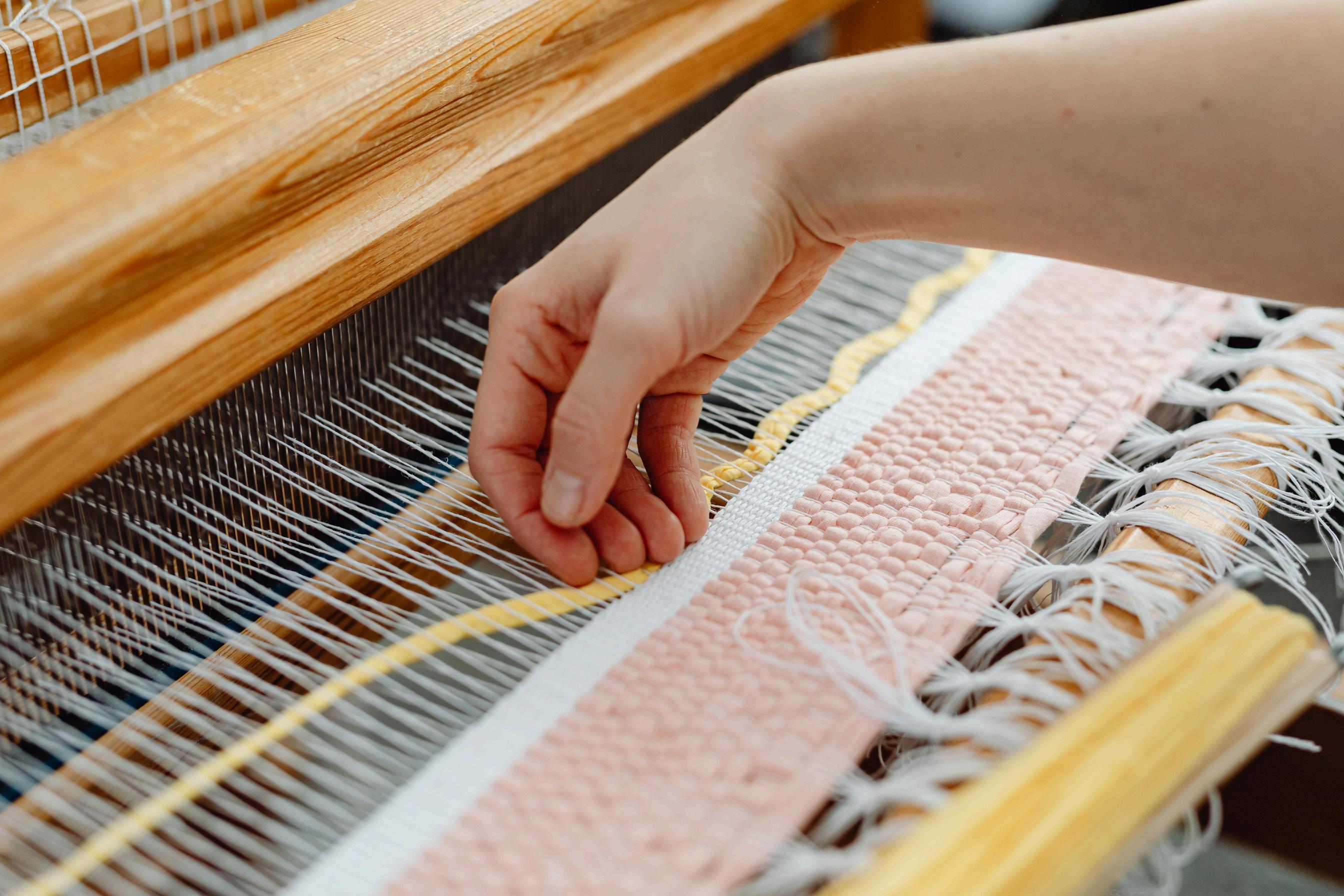

Global Organic Textile Standard (GOTS) is the worldwide leading textile processing standard for organic fibers. This standard stipulates requirements throughout the supply chain for both ecological and labor conditions in textile and apparel manufacturing using organically produced raw materials. All GOTS products are backed by independent certification of the entire textile chain.
We offer GOTS-certified products, each labelled individually.
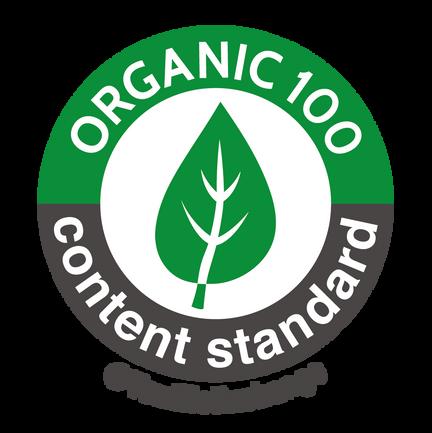

The Organic Content Standard (OCS) is an international, voluntary standard that provides chain of custody verification for materials originating on a farm certified to recognized national organic standards. The standard is used to verify organically grown raw materials from the farm to the final product, in which all individual sites are certified annually by independent, third-party certification bodies
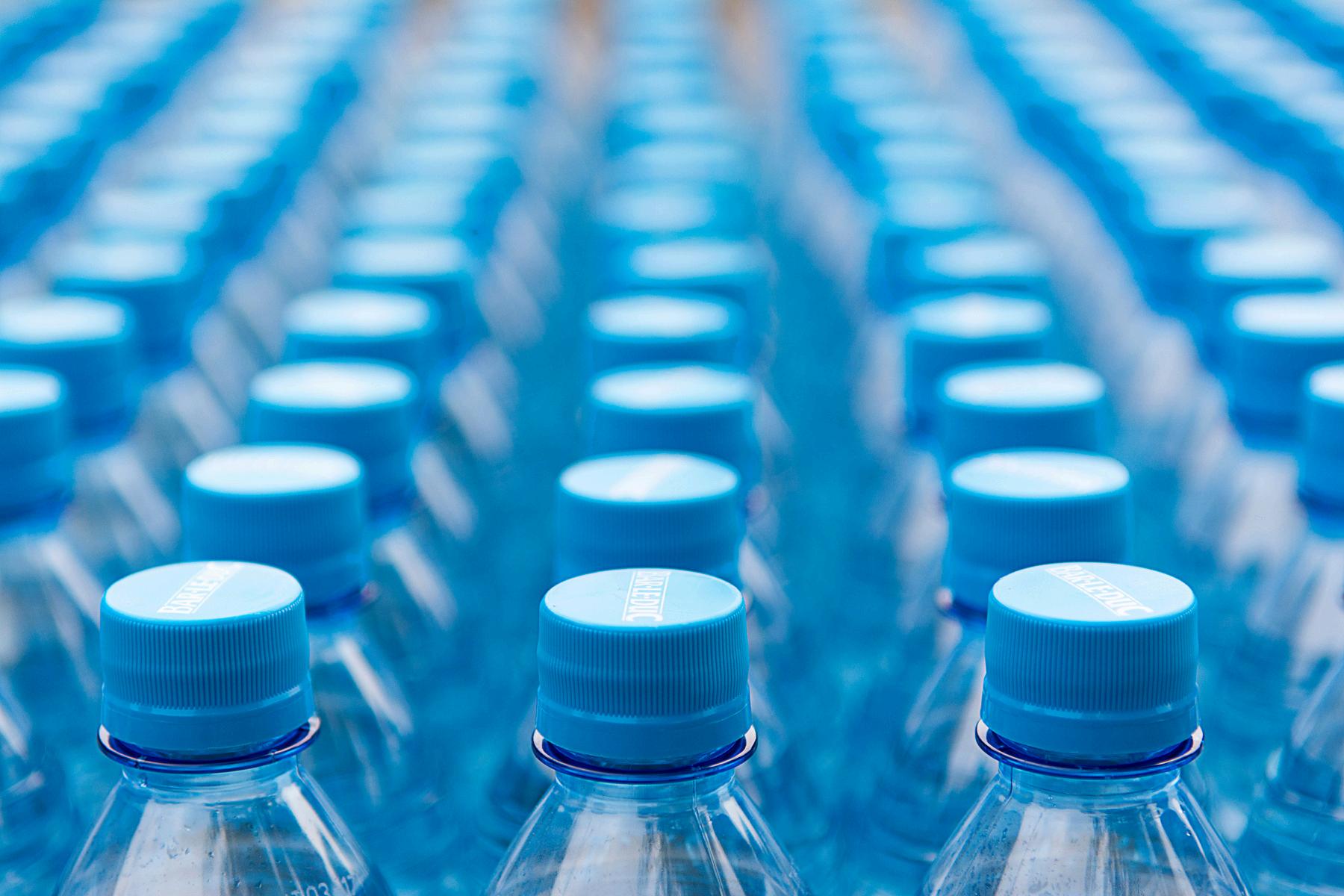
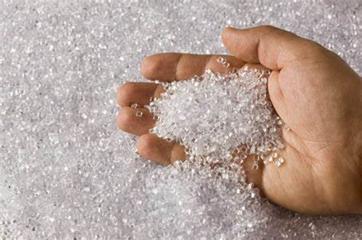

Every year, billions of plastic bottles go into landfills or find their way into our lakes, streams, and eventually oceans. Plastic accumulating in our oceans and on our beaches has become a global crisis. Billions of pounds of plastic can be found in swirling convergences that cover up to 40 percent of the world's ocean surfaces. At current rates, plastic is expected to outweigh all fish life in the sea by 2050.
In 2020, Garan committed to sourcing 100% recycled polyester in 50% of all our polyester fabric by 2023. As of 2024, Garan is projecting around 65% of all polyester fibers sourced as pre- or post-consumer recycled polyester. Garan is continuing our work to source recycled polyester fibers from plastic waste and plastic bottles and hopes to continue to increase our recycled polyester usage. By using certified recycled polyester fibers from post-consumer plastic bottles, we will conserve natural resources and prevent plastic waste from reaching landfills.
Recycled polyester (rPET) is made by melting down post-consumer or postindustrial plastic waste and then re-spinning it into new polyester fibers. The most commonly known materials are PETE and HDPE drinking bottles, but manufacturing waste from the textile industry is used as well.
On average, it takes an estimated 27 plastic bottles to make 1 lb of fiber. These fibers have the potential to keep nearly three billion plastic bottles out of landfills, save 500,000 barrels of oil and eliminate 400,000 tons of atmospheric carbon each year. This is the same as removing almost 76,395 passenger cars from the road for a year.
In 2023, Garan received our certification for Global Recycle Standard (GRS) and Recycled Claim Standard (RCS). We will continue to grow in our use of recycled materials as we move forward, using recycled polyester in as many styles as possible. In 2024, recycled polyester accounted for nearly 66% of our styles which included polyester fabrics. We plan to increase our usage in the next few years.
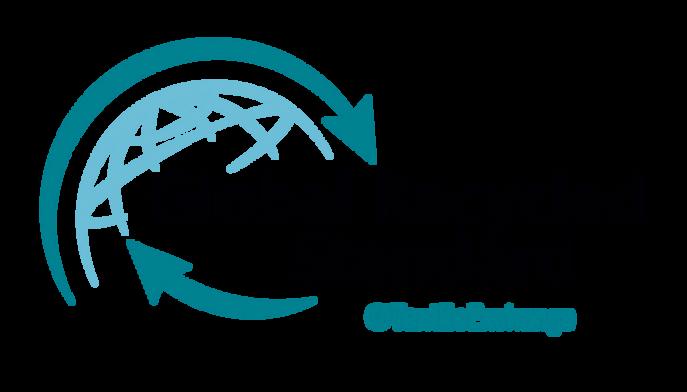
The Global Recycled Standard is an international, voluntary, full product standard that sets requirements for third-party certification of recycled input, chain of custody, social and environmental practices, and chemical restrictions. The primary goal of the GRS is to increase use of recycled materials in products and reduce the harmful social, environmental, and chemical impacts of production. The Global Recycled Standard is intended for use with any product that contains at least 20% Recycled Material, but only products with at least 50% Recycled Material qualify for product labeling.


The Recycled Claim Standard is an international, voluntary standard that sets requirements for third-party certification of Recycled input and chain of custody. The goal of the RCS is to increase the use of Recycled materials. The Recycled Claim Standard is intended for use with any product that contains at least 5% Recycled Material.
Recently, we made a commitment to ensure we are not sourcing any man-made cellulosic fibers (rayon, viscose, modal, lyocell, and acetate) derived from ancient and endangered forests, habitats, or other controversial sites by 2025. To accomplish this goal, we are requiring all suppliers source from ‘green shirt’ producers listed on the Canopy's Hot Button Report.

Learn More About the Canopy's Hot Button Report
Canopy’s Hot Button Report is a list/ranking of companies who source their man-made cellulosic fibers from forests and are committed to eliminating the use of Ancient and Endangered Forests in viscose and other cellulosic fabrics.
A company’s adherence to forest and chemical criteria earn them specific ranks on the report. These ranks are denoted by both the Shirt and Beaker Icons.

While fibers such y , renewable resource, every year approximately 150 million trees are cut down to produce these fibers. Forests soak up carbon dioxide which slows down climate change.
Ancient forests, also known as "Old-Growth" forests, are one of the most important tools we have to protect our planet from the warming climate. These forests not only naturally sequester vast amounts of carbon but also provide refuge to threatened and endangered species. In addition, they are important for the ecosystem where they reside, providing food, shelter, and oxygen to both animals and people.
Garan takes restricted chemicals seriously. Our goal is to produce safe garments for children that meet or exceed all US Government, Individual US State, and our Customer’s restricted chemical requirements. Through rigorous testing procedures, all garments that are produced for and by Garan are tested for harmful chemicals. We are continuously reviewing and monitoring regulations for chemicals to be avoided and updating our procedures accordingly. All our fabric mills and garment washers use the BHive to continuously monitor their chemicals to ensure ZDHC compliance.
Since 2019, Garan has worked with our suppliers to achieve Standard 100 by Oeko-Tex certification for 100% of our garments. To receive certification, every component that goes into our garments has been tested for over 1000 potentially harmful substances. Additionally, each factory producing components or garments for Garan has gone through an audit process to ensure the factory adheres to Oeko-Tex requirements for manufacturing. As a company we are committed to minimizing the risk of exposure to harmful chemicals and we require our partners to be equally committed to this goal.
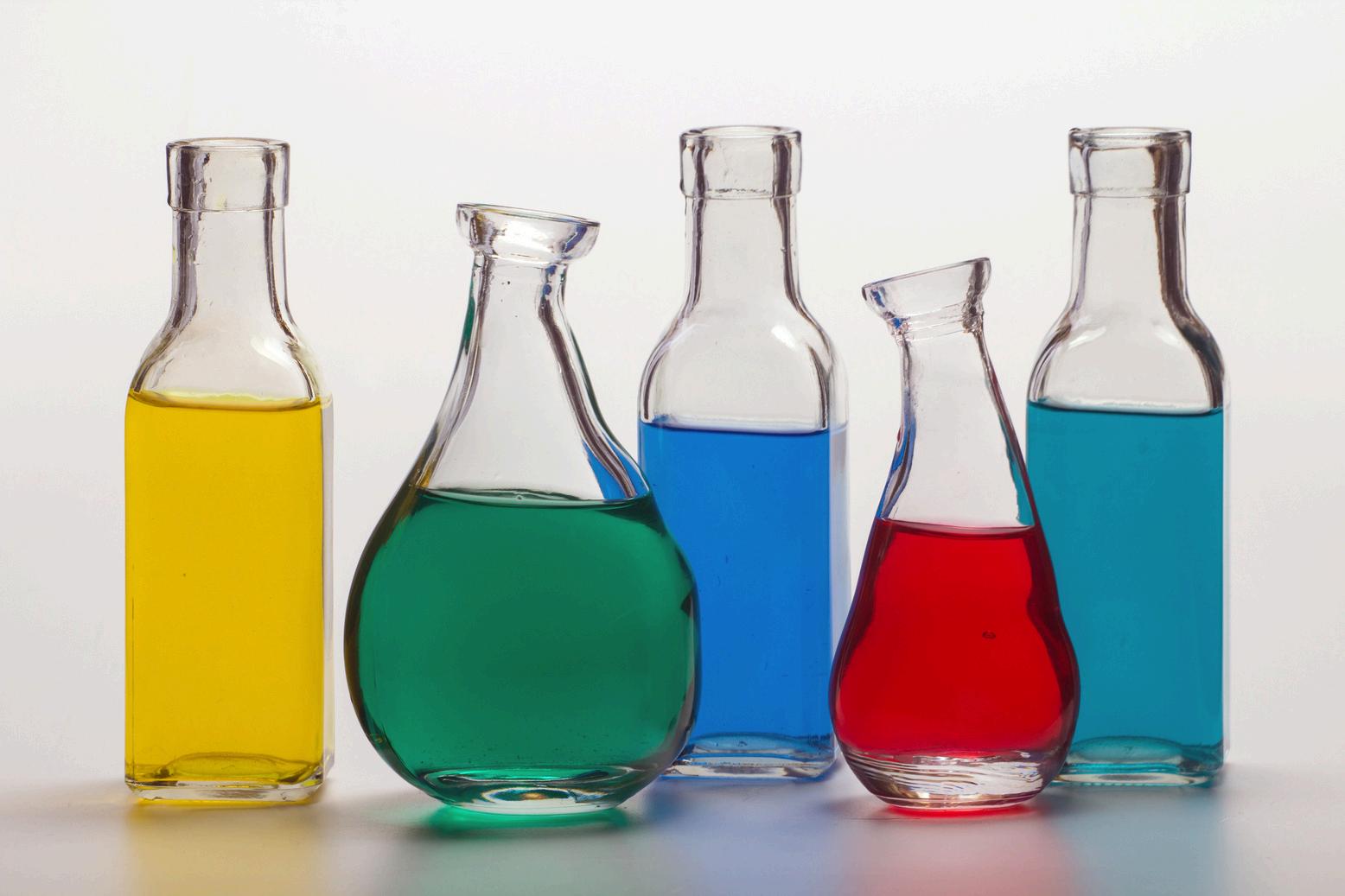
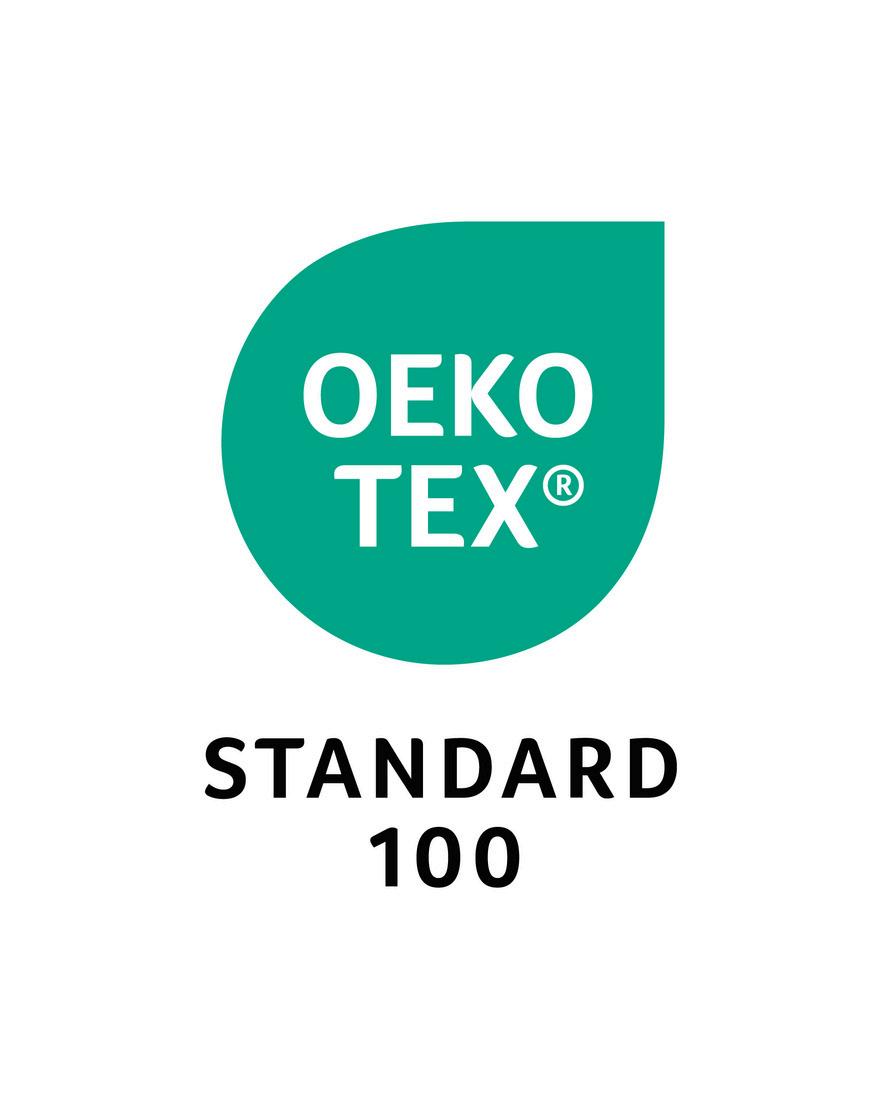
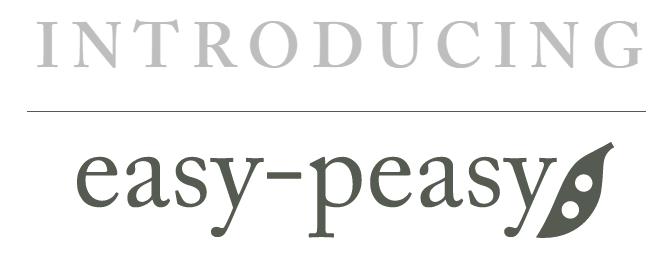
In 2022, Garan launched our new brand called easy-peasy. This brand is made with our future in mind. Our easy-peasy brand is centered around reducing our impact on the environment through sustainable sourcing. Every easypeasy garment is rigorously tested for harmful chemicals to ensure each child can wear safe and comfortable clothing.

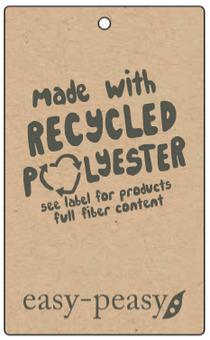


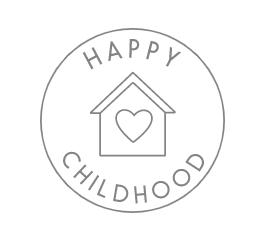


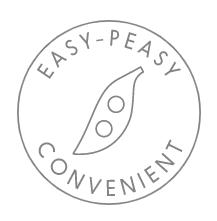


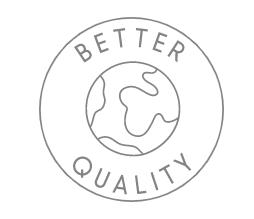
There are few natural resources as essential to the future of our planet as water. Garan sees the importance of this resource and is committed to applying sustainable, clean water practices throughout every facet of our company.
BY

Garan is committed to improving our sustainable water practices within each of our manufacturing facilities, corporate offices, distribution centers, and quality-control offices. Measurable analysis of our water usage is regularly done throughout Garan’s global company footprint, allowing us to quantify our progress and identify areas for continued improvement.
O
N E S C O 2 R E D U C T I O N S I N C E 2 0 0 8
OUR SCOPE 1, 2, AND 3 GREENHOUSE GAS EMISSIONS HAVE BEEN VERIFIED BY AN INDEPENDENT 3RD PARTY SINCE 2022.
C A R B O N
F O O T P R I N T
THE APPAREL INDUSTRY ACCOUNTS FOR 10 PERCENT OF GLOBAL CARBON EMISSIONS. WE UNDERSTAND THE IMPACT OUR ACTIONS HAVE ON THE ENVIRONMENT. THIS IS WHY GARAN HAS MADE A COMPANY-WIDE COMMITMENT TO REDUCE OUR GREENHOUSE GAS EMISSIONS. MOVING FORWARD, WE WILL CONTINUE TO PURSUE SUSTAINABLE SOLUTIONS THAT MINIMIZE OUR CO2 EMISSIONS.
62% Decrease in Emissions

IN 2024, GARAN COMMITED AND RECIEVED APPROVAL FOR SCIENCE BASED TARGETS TO REDUCE OUR ABSOLUTE SCOPE 1 & 2 EMISSIONS BY 54.6%, AND OUR SCOPE 3 EMISSIONS BY 32.5% BY 2033. THESE TARGETS ARE IN LINE WITH 1.5C TRAJECTORY.

OUR EMISSIONS REDUCTIONS ARE EQUAL TO REMOVING 765 PASSENGER CARS FROM THE ROAD FOR ONE YEAR.
we have continued to see our CO2 emissions decrease while our annual production of dozens increased. Our intensity of emissions per dozen is almost 70% lower than in our base year. In 2016, We invested in installing LED bulbs in all our manufacturing facilities. We anticipate this LED bulb project to result in the reduction of over 181 Tonnes of CO2 emissions per year.
We know there is significant work to be done in our sustainability journey, but Garan’s approach to reducing our carbon footprint will be science-based and goal oriented, providing motivation to get through our challenges. As we move forward, we will continue to measure and analyze where we are as a company and how we can work with our suppliers to reduce GHG emissions throughout our supply chain.
In 2019, we completed installation of solar panels in our El Salvador manufacturing facilities. Over the past several years, we have generated nearly 12 million KWH of renewable energy.
Currently, we are using over 759 MT (836 tons) of recycled polyester fibers in our annual fiber consumption. The production of one ton of polyester fiber emits 9.52 kg of CO2. By switching to recycled polyester, which emits 2.856 kg of CO2 per ton of fiber produced, we save 6.664 kg of CO2 emissions per ton of recycled polyester fiber.
We implemented a change to our care instructions that label all our garments as "Cold Wash", allowing our customers to avoid washing our garments in warm water. From our research, a standard, modern washing machine will emit 0.2 kg of CO2 emissions per wash if washed on the cold water/cold rinse setting while a warm wash/warm rinse setting will emit 2.5 kg of CO2 emissions per wash.


As part of our effort to reduce GHG emissions, we also focus on energy consumption. What are we powering?
How much energy is consumed to power what we do? How can we be more efficient with the power we’re using?
These are questions we are consistently measuring, analyzing, and addressing.
In 2023, Garan’s energy consumption was our lowest on record. We achieved a 57% decrease from our base year of 2008.
Purchased Solar
34% of our total company electricity consumption comes from renewable energy.
Since 2019, seven of our El Salvador facilities have been using renewable solar energy to help meet our power needs. Today, over 56% of our total energy consumption in these facilities comes from renewable solar energy. In total, our facilities have generated over 7 Million Kilowatt Hours of renewable energy.
We are committed to reducing energy consumption and will continue to seek ways to use efficient, clean energy throughout our company.
Garan strives to be zero waste to landfill by 2030. As a company, we recognize the impact our waste has on the environment and are committed to making a difference. To meet this goal, we must be efficient with materials we bring in and conservative with what we send out.
To help reach our goal of achieving zero-waste-to-landfill status, we are focused on company-wide recycling efforts. Since our base year in 2008, we have recycled 27 million pounds of waste materials.
Garan acknowledges the inverse relationship between waste and recycling, and we will continue to focus on both. As our processes evolve to become more efficient and environmentally friendly, Garan will continue to reduce our waste, increase what we recycle, and ultimately reach our goal of being a zero-waste-to-landfill company. As of 2023, we have diverted 48% of our waste from the landfill.

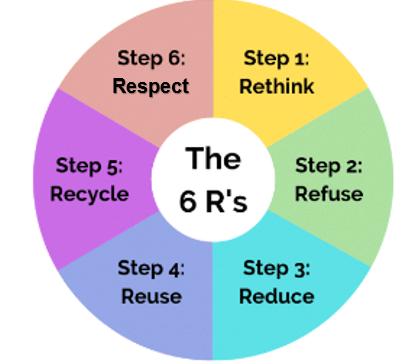
At Garan, we work hard to create a company that is both sustainable and thriving. We expect every employee to be involved in our sustainability efforts. It is important that everyone take part in the evolution of our company and have a voice when it comes to sustainability.
We want our employees to think about the open-ended possibilities, think outside the box, and open their eyes to new ideas, ideas that conserve energy or otherwise lessen the impact we have on our environment. We strive to recognize those in our company who are generating change and propelling innovation toward continued growth in our sustainability journey.

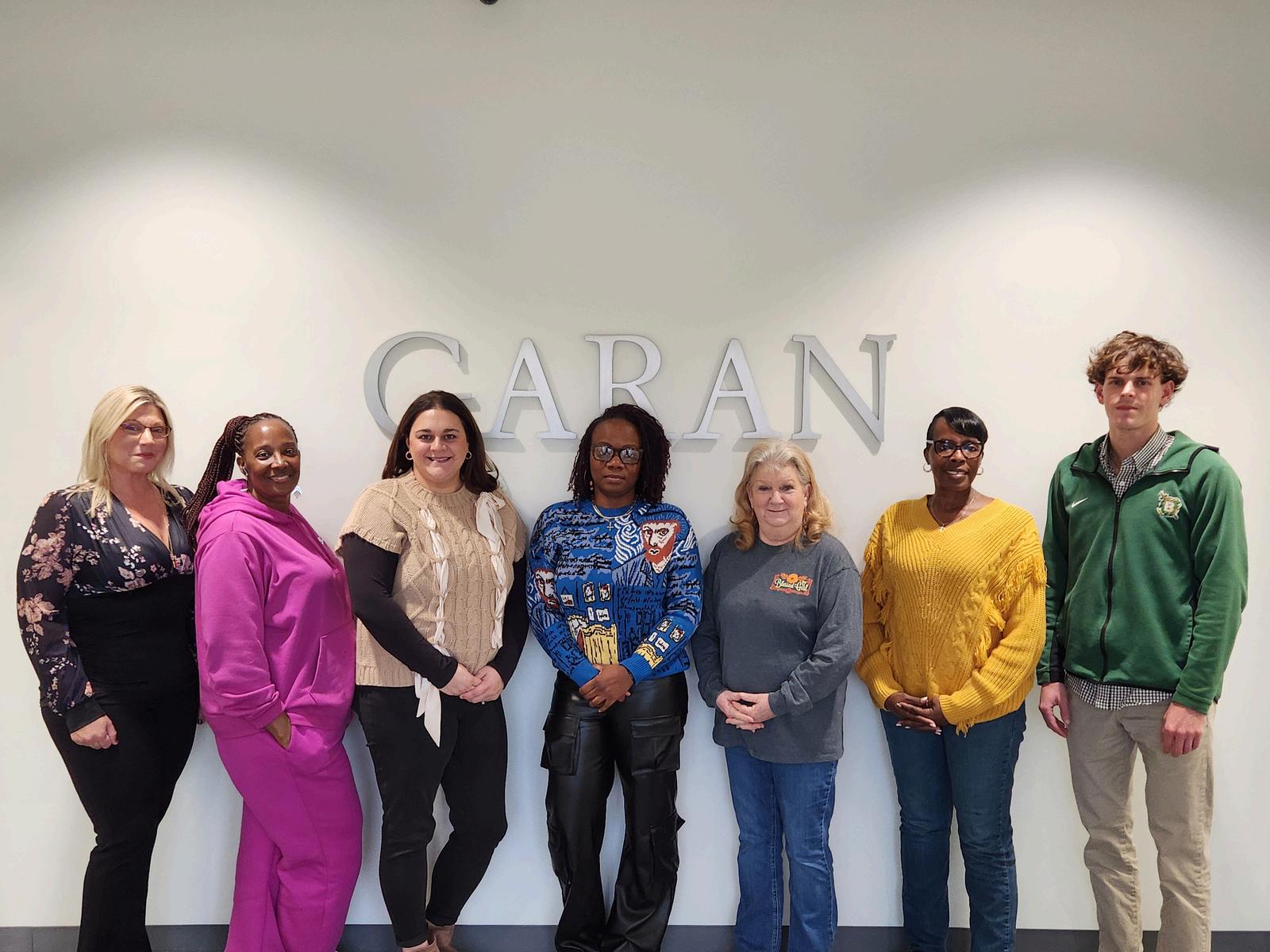
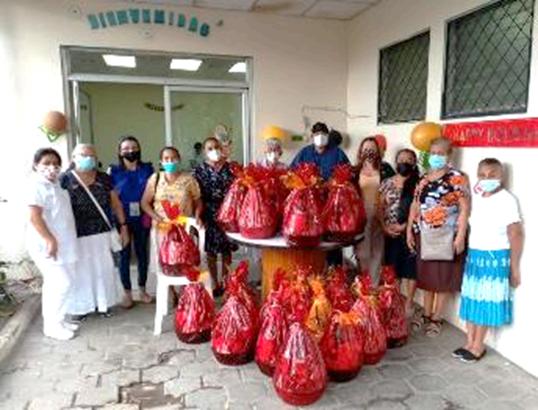
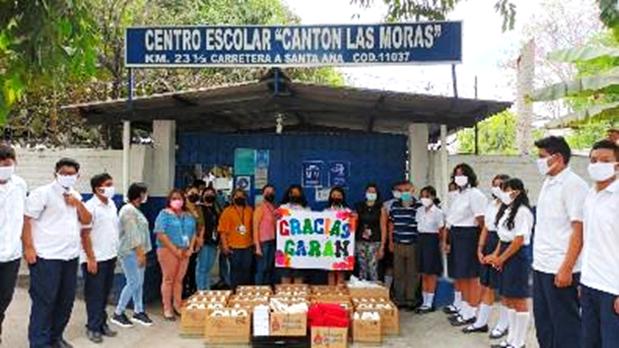
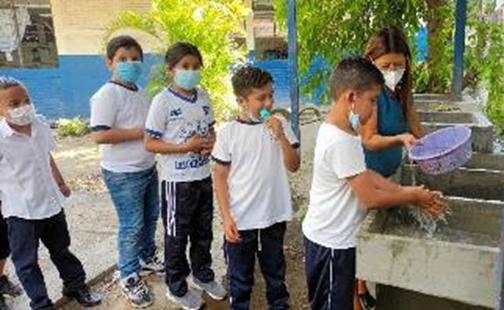
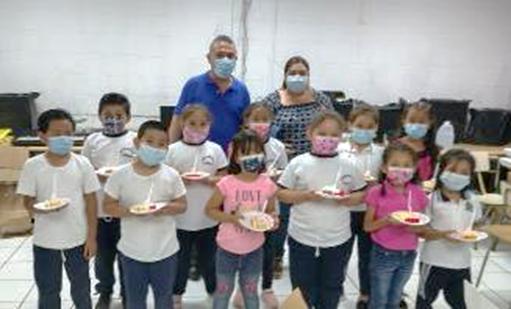
Corporate Social Responsibility (CSR) is an evolving business practice that incorporates sustainable development into a company's business model. It has a positive impact on social, economic and environmental factors. As part of our commitment to CSR, Garan is involved in many local community events throughout the year. We are actively involved in our local charitable organizations, such as: local schools projects, Health Clinics, volunteering at Elderly Care Homes, and Non-Profit Organizations such as the Red Cross and Funter Telethon for disabled children and adults to name a few. We strive to be an active participant in maintaining and improving the community around us, not just by providing jobs, but by being a positive influence in the communities in which we live and work.
One Big Garan Family - 3,000 Strong
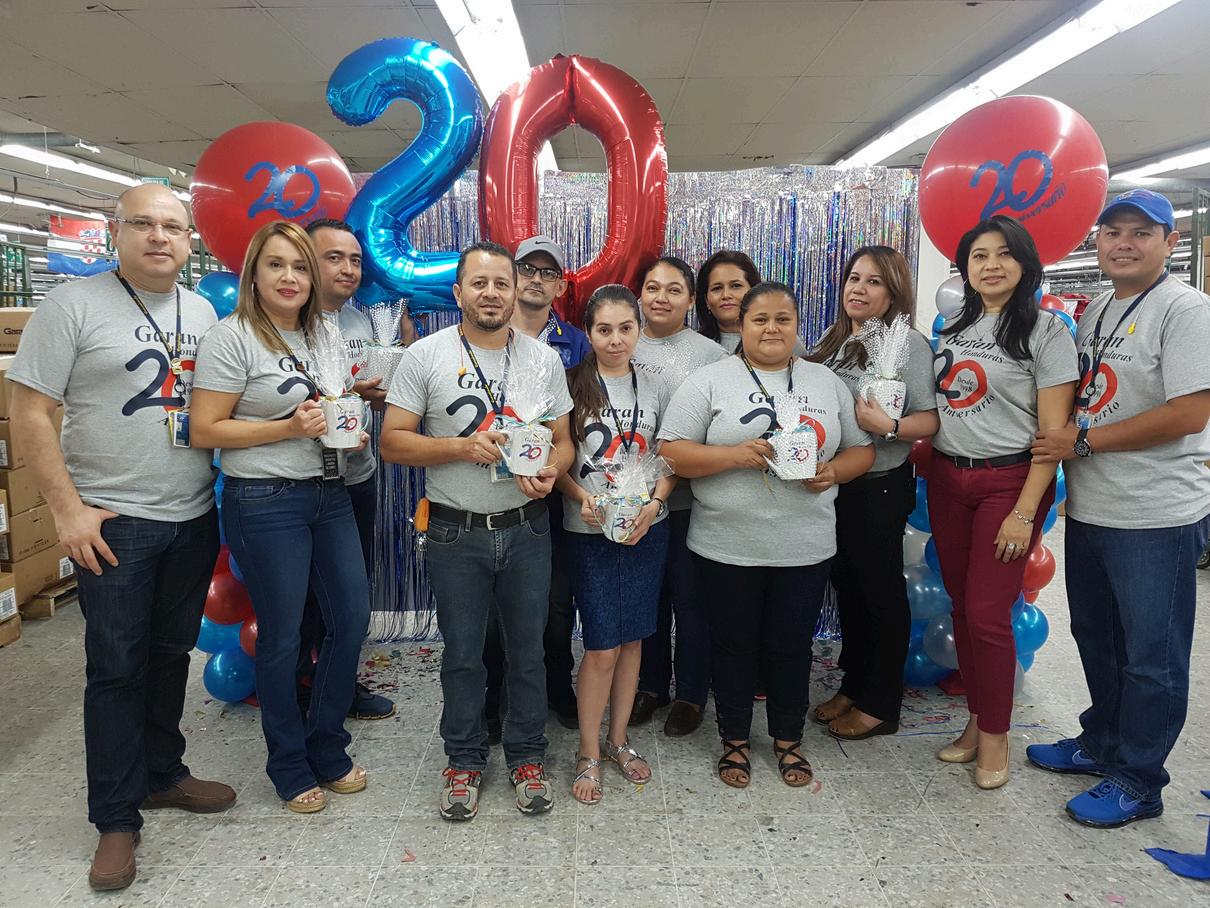
Our employees are at the heart of our success as a business. At Garan, we think of our employees as one big family, and we want them around for as long as possible. We believe in not only celebrating our time with our family, but also providing them with a safe place to work.
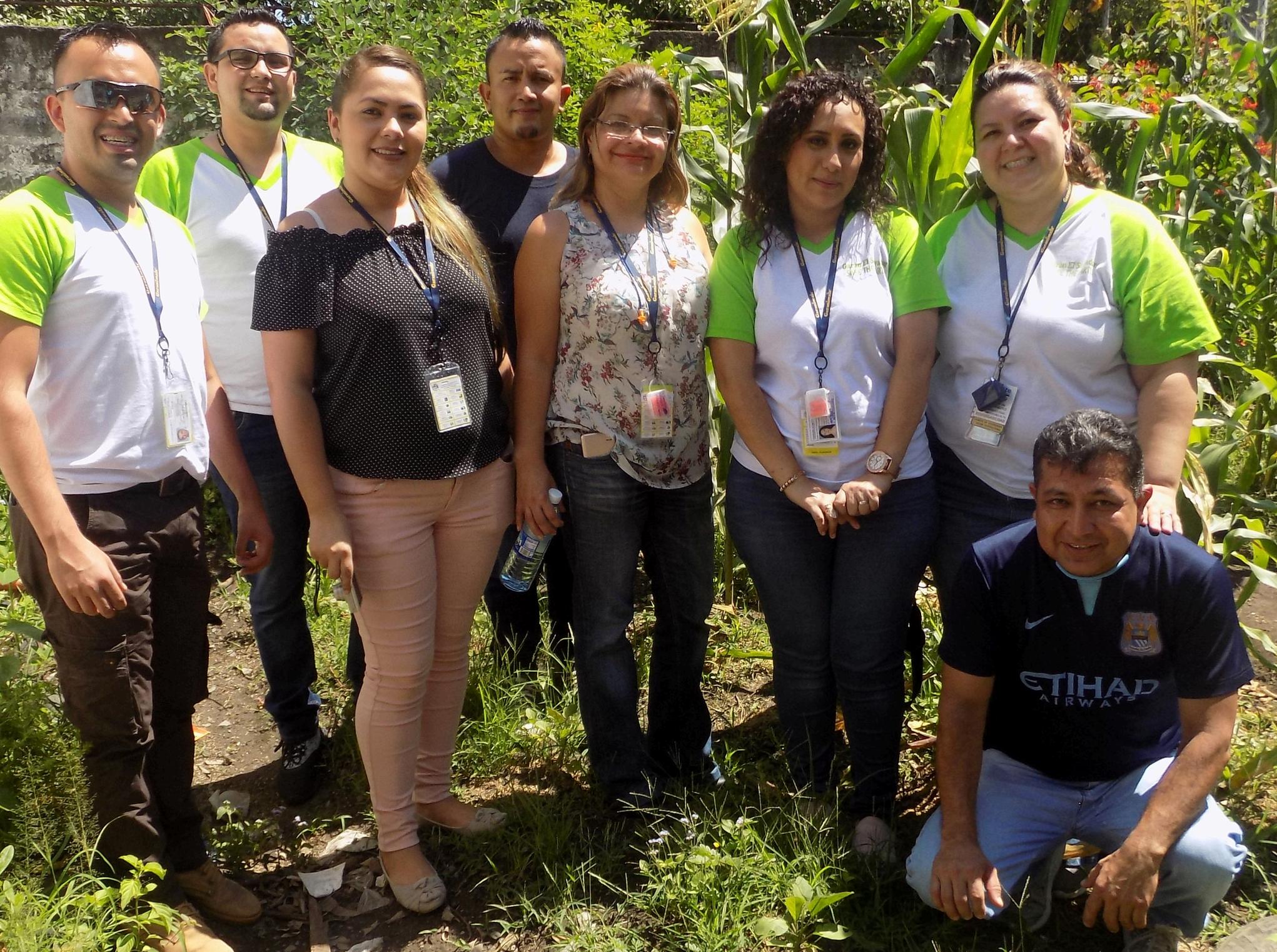
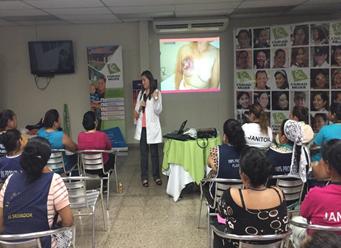
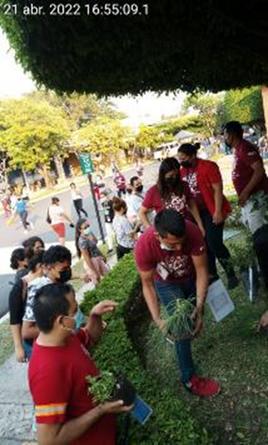
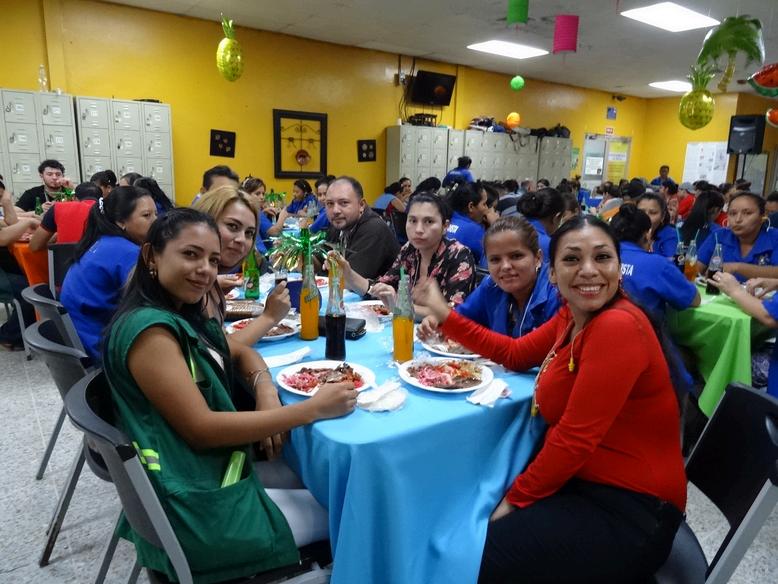

In 2023, our company incident rate was 1.01%. This is a measurement of all loss time and recordable accidents per 100 employees. We believe one accident is too many but if an accident happens, we investigate the incident with all means possible to identify the reason it happened and correct it. Learning from this, we work to implement additional safety measures in hopes of eliminating all workplace incidents. We continue to work toward a ZERO Accident goal.
Garan cares about the safety and well-being of our employees. To ensure all employees have the necessary knowledge of what to do during an emergency, we provide up to date and comprehensive emergency evacuation training that covers what to do in the event of a fire, flood, earthquake, or other natural or man-made disasters.
Garan invests in a variety of training programs to promote work health and safety throughout the year: Ergonomic Exercise, Teamwork, Proper Handling and Driving of Motorcycles, Proper Diet, Chemical Safety, Equipment Training, Personal Protection Equipment (PPE) Training, Respiratory Infection Awareness, Physical Stress Relief, and many others.
All educational activities are designed with the purpose to help prevent on site accidents. We work to ensure our facilities comply with all local safety regulations to ensure the welfare of our employees.
As part of our safety program, each of our facilities are equipped with fully stocked first aid stations and have several on site personnel that are trained to perform emergency first aid & CPR.
Throughout each manufacturing facility, the emergency aid stations are clearly marked so that all employees and trained staff can easily and quickly access them in case of emergency.
With the support of the medical clinic located near our facilities, all employees receive training on how to avoid and prevent the contraction of bloodborne pathogens. As we work in a manufacturing facility there is always a prevalent risk of injury. We want to make sure we have taken all necessary preventative measures to reduce this risk.

We believe our differences make us stronger. At Garan, we are committed to providing a workplace where everyone is treated with respect and empowered to contribute equally. We work hard at fostering an inclusive atmosphere and a sense of belonging for all our employees.
We are committed to providing equal employment opportunities to all employees and applicants without regard to race, religion, color, sex, national origin, citizenship status, uniform service member status, age, sexual orientation, marital status, genetic information, disability or any other protected status.
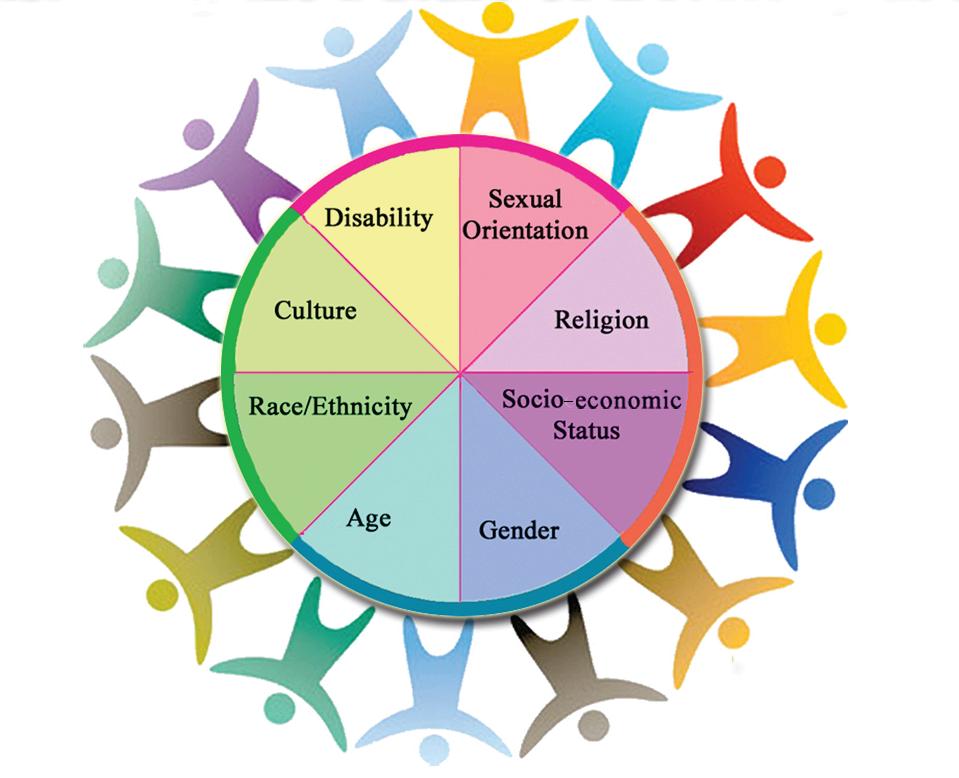
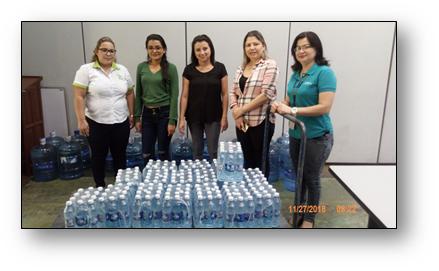

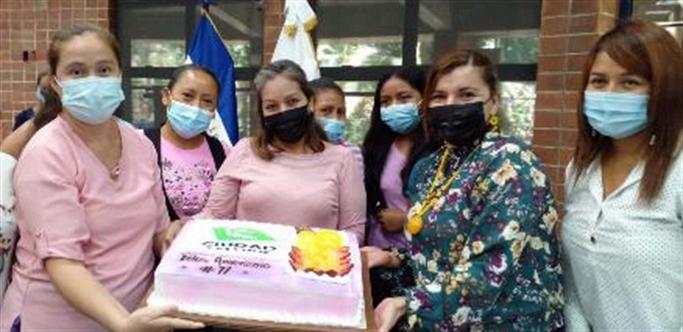
In an ongoing effort to contribute to the pursuit of equality for women, Garan volunteers, hosts, and sponsors many programs supporting women and women's rights. We are an equal opportunity employer.
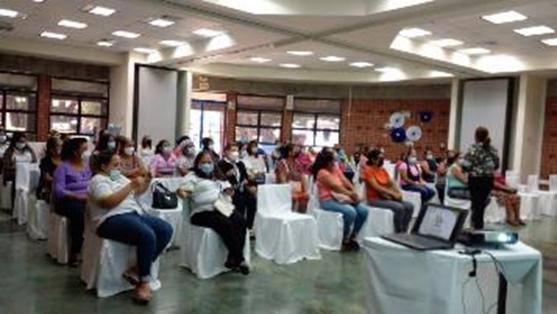

We have started a Future Mother’s program in our Central America facilities. We believe it is very important for expectant and current mothers to gain knowledge on caring for their children as they grow and develop. As part of this program, we bring in a medical expert to talk to expectant mothers on the topics of proper nutrition for mother and baby, how to properly care for any needs their baby may require. The program details the options that are available for mothers during delivery, and also covers basic care for mothers and babies after delivery. In the past, many expecting mothers did not have the resources or funds available to have their babies in a hospital and would give birth at home or wherever they could. With Garan’s program, more mothers now have access to proper medical facilities for a healthy and safe delivery.
Garan works closely with local women’s shelters. We support the Prevention of Femicide and Violence against Women; working to help those who have suffered abuse from friends and family. We help by donating necessities, such as food, water, and clothing needed for the women who cannot return home. We also teach them about abuse prevention and selfdefense to help them moving forward, as well as offer vocational training so that they may have a new skill set when looking for employment.
Garan provides paid internships for select students interested in furthering their careers in the fashion industry across the globe.

Interns receive valuable workplace experience and develop the necessary skills they will use for their future careers. We offer standout students full-time employment within the company.
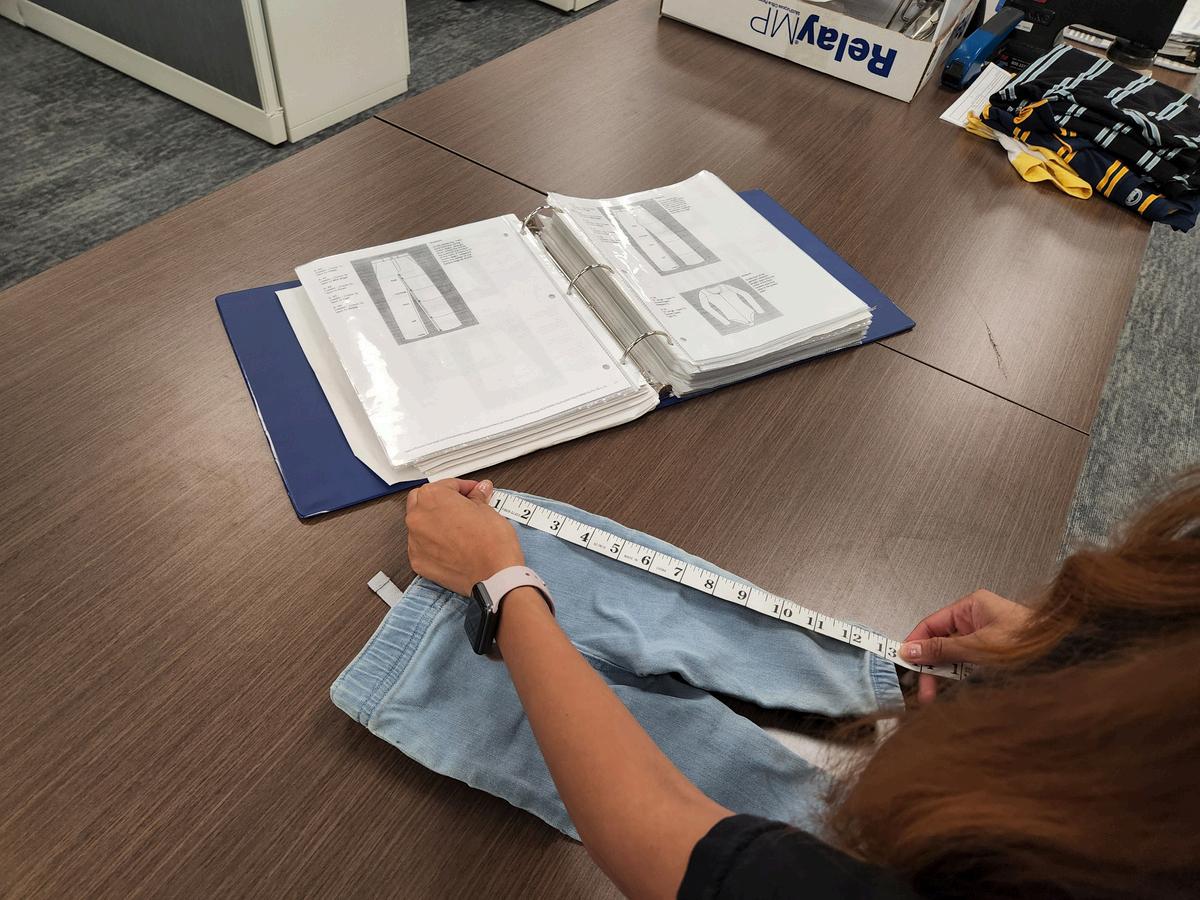
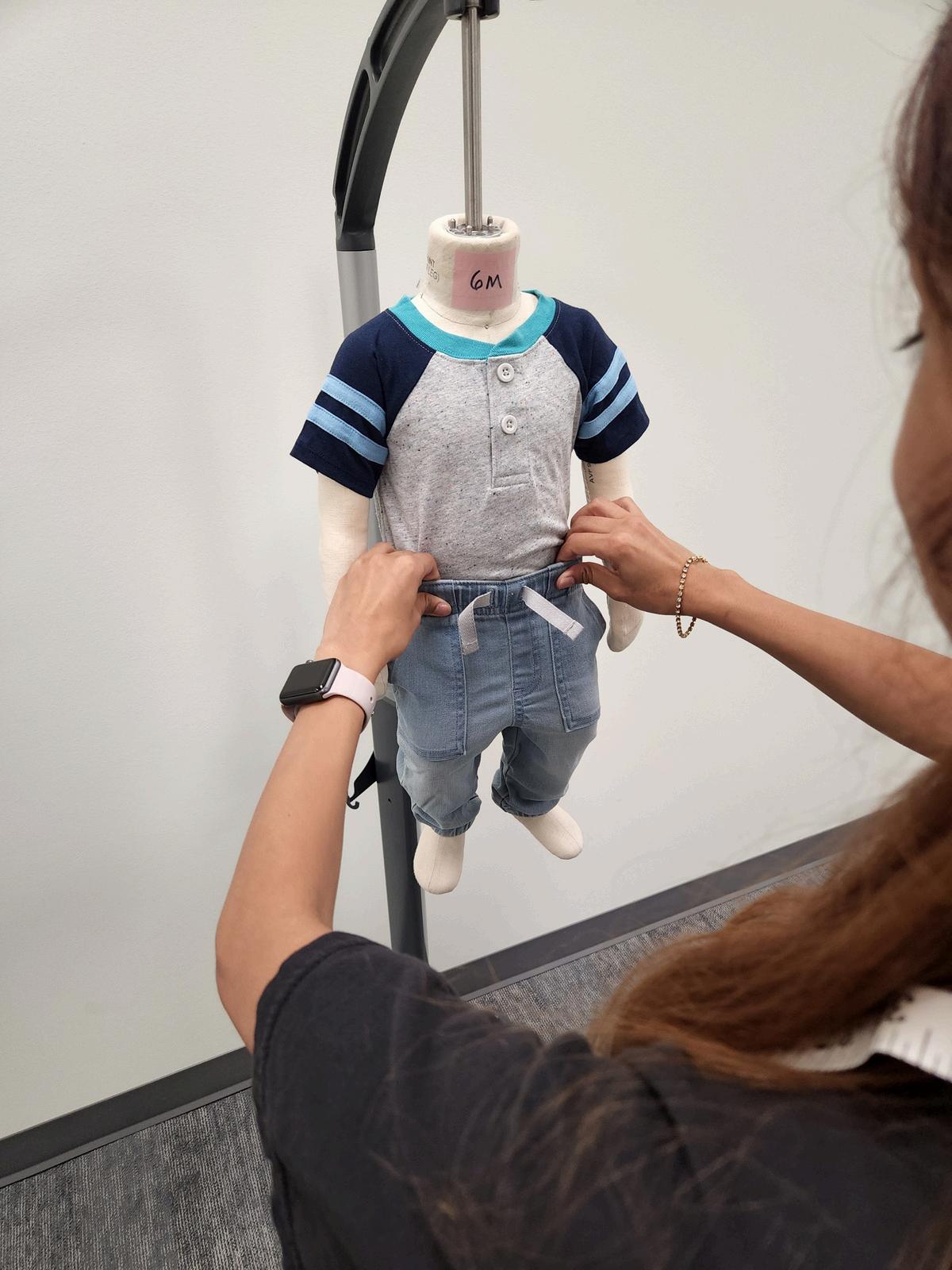

Garan has partnered with several local and national charitable organizations to help those in need. We have donated both clothing and fabric to these organizations in the hopes that it can be used to improve the lives of those who are struggling or have been affected by tragedy. As a company, we have set a goal to donate over 200,000 lbs. of fabric and 2,000,000 garments by 2025.

Over 5.5 million Ukrainians have fled their homeland since the beginning of the Ukraine - Russian War, the largest refugee crisis in Europe since World War II. Most refugees have entered neighboring countries to the west of Ukraine, with Poland receiving more refugees than all other European countries combined. Romania, Moldova, Hungary, Slovakia, and others have also opened their borders to refugees. More than half of refugees are children. They are fleeing with mothers, grandparents and men who are too old for military service. Often, refugees are leaving their native country with nothing more than the clothes they’re wearing and the few belongings they can carry in a piece of luggage.
To support the refugees, Garan collaborated with Good360 and their network of partners to donate over 131,000 children's garments. We hope the children and their families are able to be comforted in this uncertain time.
On September 6th, 2019 Hurricane Dorian was the first major hurricane of the 2019 Atlantic hurricane season. Dorian was the most intense tropical cyclone on record to strike the Bahamas and is regarded as the worst natural disaster in Bahamian history. After seeing the damage done by Dorian, Garan partnered with disaster relief efforts to provide clothing for those families with young children who were affected by Dorian as well as fabric to help make needed clothing and other essential materials due to the limited resources available at that time.
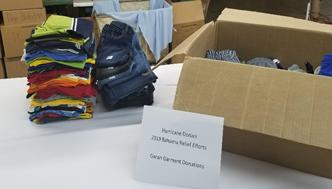
In early December 2021, the cities of Mayfield and Benton, KY were devastated by deadly tornadoes that ran through Arkansas towards the Great Lakes. Over 200 miles of land across the state was devastated. Many families lost everything they had.
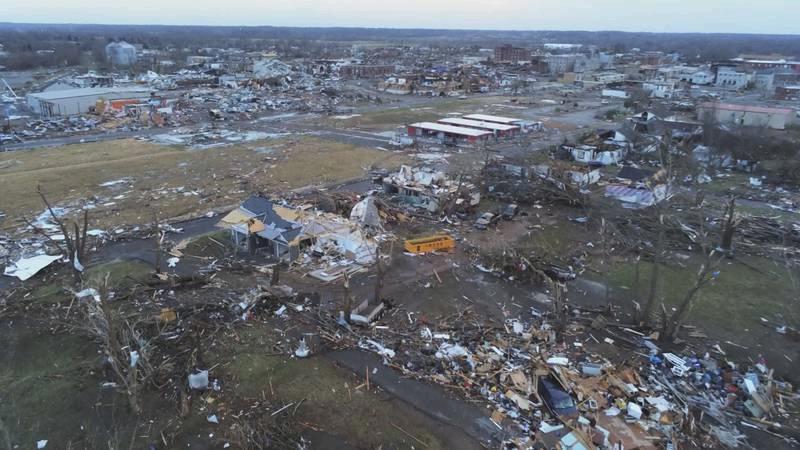
In the wake of this tragedy, Garan reached out and worked with our national charity partner Good360 to help provide relief. To help those families in need, we donated over 11,000 children's garments. Good360 was able to work with the Kentucky Division of Emergency Management to get essential items to communities impacted by the tornado outbreak.
Garan has partnered with national organizations such as the Red Cross, Good360, and Delivering Good to help individuals facing challenging life circumstances get the supplies they need. By working with these organizations, we believe we are inspiring hope, and know that our products are given a new life, allowing us to not only reduce waste but help build strong communities for the future.
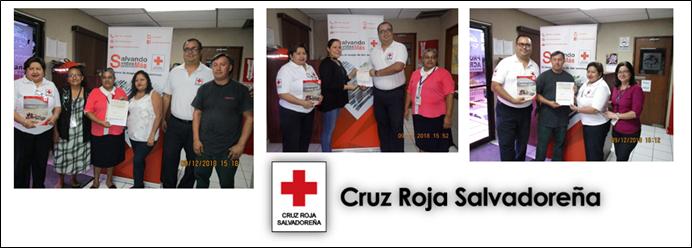
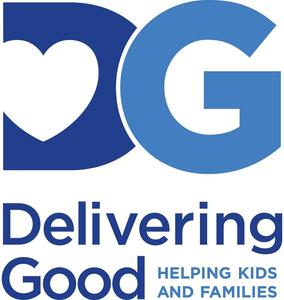
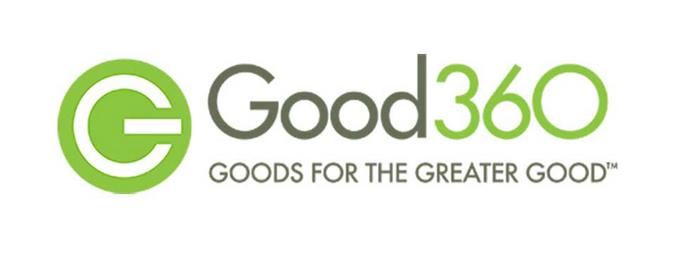
Since 2019, Garan has partnered with Good360 and Delivering Good by donating over 1,300,000 children's garments to their networks of non-profit organizations. These organizations will distribute our clothing to areas in the world impacted by natural disasters, poverty, or other hardships. Our hope is that our garments will be able to help children and their families going through difficult times by providing quality and stylish children's clothing.

In an effort to help educate the next generation of fashion designers, Garan has worked alongside Mississippi State University Fashion Design and Merchandising Department by donating fabric. The undergraduate and graduate students of the department will use the fabric to better understand the design processes of the fashion industry. As many know, even for large universities, procurement of resources for a department can be a struggle.
When we were approached by representatives from Mississippi State about donating our fabric scraps to their department, we knew this was a excellent opportunity to aid in the education of future fashion designers by providing them with necessary materials.
Garan is also working with local organizations to help give back to the community. We have partnered with organizations like 4-H, foster homes, homeless shelters, and local churches. by donating fabric. Our fabric will be used to teach children and adults to sew through craft projects making blankets, pillows, stuffed animals, and clothing. The items made by the organizations will then be provided to those in need.

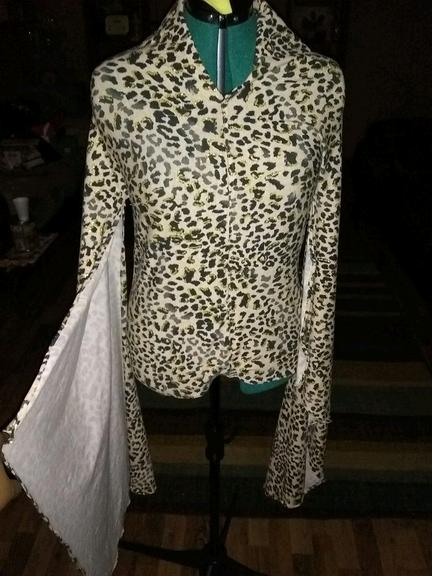




CONTINUE TO REDUCE OUR WASTE TO LANDFILLS
ACHIEVE OUR SCIENCE BASED TARGET GOALS OF REDUCING OUR ABSOLUTE SCOPE 1 & 2 EMISSIONS BY 54.6%, AND OUR SCOPE 3 EMISSIONS BY 32.5% BY 2033 REDUCE OUR CARBON FOOTPRINT ANOTHER 3.5%
FIND MORE WAYS TO INVOLVE OUR EMPLOYEES AT ALL LEVELS OF OUR COMPANY IN OUR SUSTAINABILITY EFFORTS
REDUCE THE AMOUNT OF OVERALL ELECTRICITY USE IN ALL OUR FACILITIES BY AN ADDITIONAL 5% OVER THE NEXT YEAR
COMMIT TO USING 100% RECYCLED PACKAGING AND LABELING WITH RECYCLING OPTIONS FOR THE CONSUMER BY 2025 BY 2025, HAVE ALL TEIR 1 AND 2 SUPPLIERS ACHIEVE LEVEL 1 SCORING ON THEIR HIGG INDEX 3.0 FEM

CONTINUE TO HAVE ALL WET PROCESSORS VERIFIY ALL CHEMICALS AGAINST THE ZERO DISCHARGE OF HAZARDOUS CHEMICALS MATERIAL RESTRICTED SUBSTANCES LIST
DISTRIBUTE AND PLANT 15,000 TREES BY 2030 TO HELP COMBAT DEFORESTATION